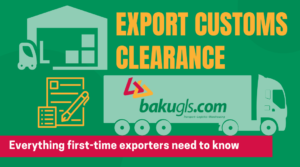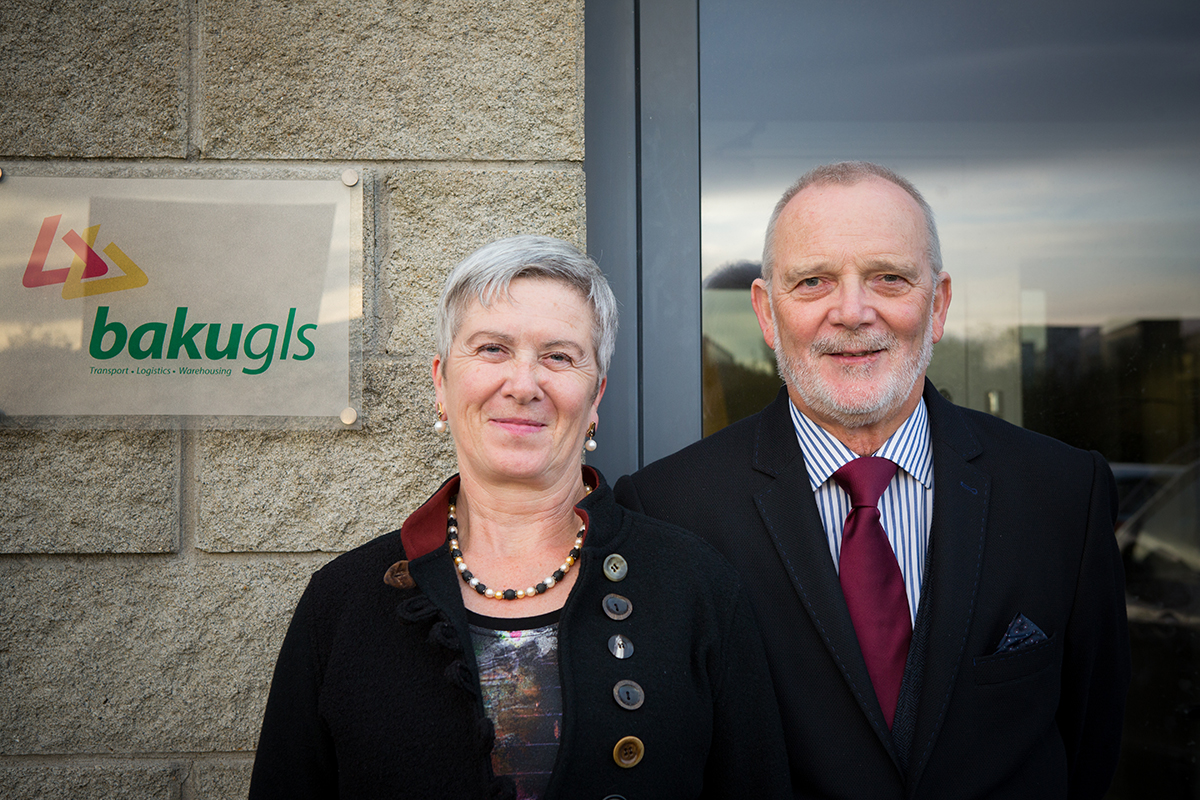
Selling to businesses outside of the EU? Get ready for a lot of customs paperwork!
In this guide to export customs clearance, we’ll explain everything you need to know before you start selling goods internationally. From HS codes to Incoterms, we’ll list out everything you need to know as a first time exporter. We’ll show you how to get your files in order so that your export procedures are as seamless and stress free as possible!
Getting Ready For Customs: What To Do First
Whenever you sell goods outside of the EU, you have to deal with Customs … even when there are no import/export taxes to pay. Manu beginner exporters are intimidated by the sheer volume of paperwork, but it’s not as scary as it looks. If you follow a few simple steps and work with a reliable team of experts, you’ll be ready to sell goods internationally for years to come.
There is a lot of paperwork involved in selling goods outside of the EU (see our Guide to Customs Paperwork: UK Exports for a full list), but before you can fill in a single customs document, you need to know a few basic things. Customs authorities will want to know about your own business, the cargo you’re shipping, who you’re selling your goods to and what terms you’re trading under. All of this information needs to be in place long before goods are loaded onto the lorry at your depot.
Pre-Sales: What You Need To Do
Customs compliance starts long before you start to export goods. Before you even pick up the phone to an overseas buyer, you should at least take these two steps:
Register your business for export
All exporters must hold a valid EORI number (and VAT number if applicable) before they start selling goods outside of the EU. These numbers need to be included on almost every customs-related document, so there’s no sense in even starting to sell goods overseas without them.
The same goes for your overseas buyer (consignee). An importer might not be able to get an EORI number, depending on where they’re based, but they will at least have national tax numbers similar to Ireland’s VAT registration system. Make sure you ask for as much detail as possible, and at the very least make a note of the buyer’s business registration numbers before you move ahead with a deal.
Know the HS Codes & Origin of what you’re selling
Almost every customs document you’ll deal with will ask you for the Origin and HS Code of your goods:
- The ‘HS Code’ or ‘Tariff Code’ is an 8-10 digit number that categorises your goods based on the WCO’s Harmonised System (learn more on our Guide to HS Codes).
- The ‘Country Of Origin’ of your goods is different to the country of despatch/export. Origin refers to where your goods were created in the eyes of the international customs authorities. To learn more, take a look at our Exporter’s Guide to Rules of Origin.
You should figure out the HS code and Origin of the goods you’re planning to sell as soon as possible. If you don’t get this information right, then you run the risk of goods not making it through the port, costly delays and heavy fines.
If you just take these two basic steps before picking up the phone to an overseas buyer, you’ll be in a good position to proceed to the next stage: making your first export sale!
Doing The Deal: What Your Buyer Needs From You
There’s nothing more exciting than getting a big order from an overseas buyer! International expansion is always good news for any business, but you do have to watch your costs. You have to plan ahead to ensure that the deals you do are still profitable after transport costs and customs taxes have been paid.
When you agree on a price with an overseas buyer, you should at least factor in the cost of insurance, road freight, ferry crossings, loading and unloading charges and taxes. You also need to know who is responsible for the cargo at each stage of the journey. These steps will help you get there:
Agree your Incoterms
Incoterms are a mutually-agreed-upon set of template ‘rules’ that importers and exporters all over the world can follow when shipping goods internationally. Using Incoterms, you and your buyer will have a crystal-clear understanding of who is responsible for costs like shipping, freight and insurance. Incoterms also explain who is responsible for customs clearance and payment of duties and taxes (learn more on our Incoterms Guide).
Technically you don’t have to use Incoterms when shipping goods abroad, but in our experience it makes it much easier to keep goods moving through ports. When customs officials stop a truck at the port, they can’t let it go again until they have a full understanding of what’s on board the trailer, where it’s headed and who’s responsible for it. Incoterms make it much easier for customs officials to get the answers they need as quickly as possible, and let trucks continue on their journey.
Pick a reliable transport company
Not all transport companies are created equal! For goods to get from your depot to your customer’s warehouse, they will most likely need to travel by road, rail, air and/or sea. There are lots of steps involved in each of these journey types, and there are sadly lots of ways that things can go wrong at short notice.
A reliable transport partner will have the experience, contacts and capabilities needed to get goods from A to B. They should also be able to advise you on everything from Incoterms to ferry sailings and customs procedures … and they should have a track record of delivering goods on time and in perfect condition.
If you need a transport partner, you should give us a call on 053 9161786! Here at Baku GLS, we have acted as road freight partners for thousands of commercial customers over more than two decades. We have a large fleet of state-of-the-art trucks and trailers, moving goods on a full-load or part-load (groupage) basis all over Europe. We’re lucky enough to have a very experienced team of transport experts, who can handle everything from ferry bookings to route planning and customs. We’re also AEO certified, which means we get preferential treatment when travelling through customs controls at the ports. Give us a call and we’ll tell you more.
Check the taxes you’ll have to pay
Every country in the world has its own set of customs duties and import taxes. Your goods may qualify for exemptions in one country but not another, or you could find that some of the goods you sell incur a tax bill, while other goods are zero-rated or exempt.
Before you send out your sales contract, it’s important to check the taxable status of the goods you’re selling. You can do this using the EU’s TARIC database. TARIC lists the tax and VAT payable on every single type of product you might want to export, in every country you want to export to.
If you know all of the taxes you’re going to face before you make the sale, you can negotiate a fair price that protects you and your buyer from losing money. You can search TARIC yourself or you can hire a third-party customs broker to help you — the choice is yours.
Check the certificates you’ll need to hold
Some goods need to be certified before they can leave the country. There are tight controls on the movement of dangerous goods like weapons and chemicals, for obvious reasons, but there are also controls on agri, food and manufactured products. If you don’t hold the right certificates, your goods can be refused at the port of entry, so it’s important to check all of this before you sign up a new customer in a new country.
- Quotas are one type of certification to watch out for. Some countries will only import a certain amount of goods from the EU every year. If you check the TARIC and quotas are mentioned, then you will need to apply for a share of this quota in order to sell your goods to an overseas buyer.
- Germs are another consideration. If you’re selling plants or vegetables, for instance, you might need a phytosanitary certificate to confirm that the goods you’re selling are free of disease and invasive plant species.
- Consumer safety comes into it, too. If you’re selling a manufactured product, then you might need to prove that the product you’re exporting meets certain standards (like the CE mark, for instance).
All of these certificates take a while to be issued, so you need to do your due diligence and apply for the relevant paperwork well in advance of your shipment dates.
Write it all down on your Commercial Invoice
When you sell something to a business in a third country, in the eyes of the customs authorities, you become the ‘consignor’ and your buyer becomes the ‘consignee’ of those goods. The deal done between consignor and consignee then forms the foundation of the customs paper chain. That’s why the commercial invoice is so important.
Your commercial invoice doesn’t have to list absolutely everything to do with your shipment (the customs declaration is a much more detailed and comprehensive form), but it does cover the most important parts. Just like a normal invoice you will need to include your buyer’s address and list out the prices, quantity and sometimes the weight of what you’re selling. You also need to include HS codes, EORI numbers, Incoterms, Country of Origin and more. Learn more on our guide to the commercial invoice.
Other Practicalities to Consider
That’s it! If you do everything on this list, you’ll be well on your way to exporting your first customs-compliant shipment overseas.
Just remember that as your export business grows and your customs journey continues, the paperwork increases slightly. For instance, you’ll need to keep an audit-ready record of every export shipment (including things like the commercial invoice, packing list and arrival notice) for at least three years (source: revenue.ie).
Customs is a tricky area if you’re new to it. The good news is that we’re on hand to help you here at Baku GLS. If you have any questions about how to set up as an exporter, or if you need transport or customs support, please contact us. We pride ourselves on Delivering Excellence — First Time, Every Time. We’re a one-stop transport shop and we’re always happy to share our expertise with our customers.
Thanks for reading!














